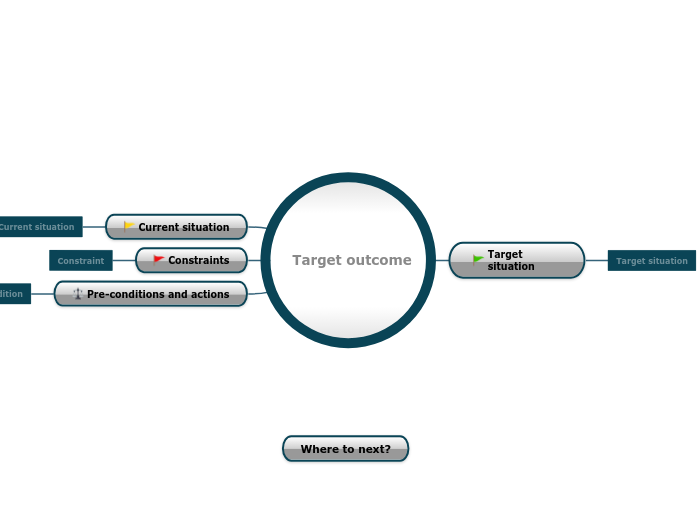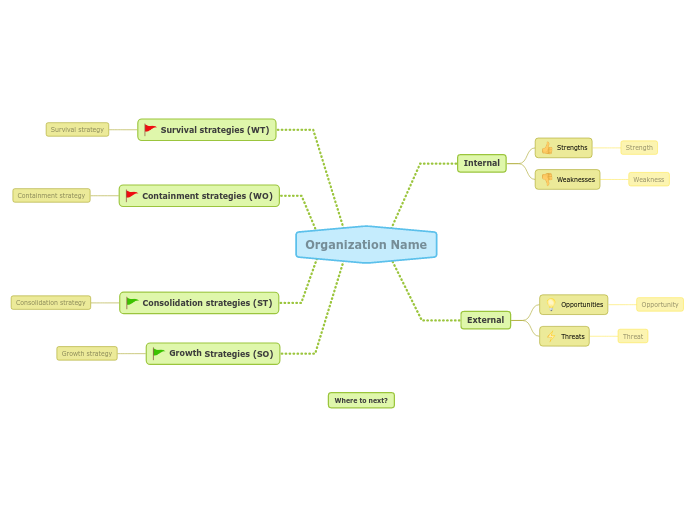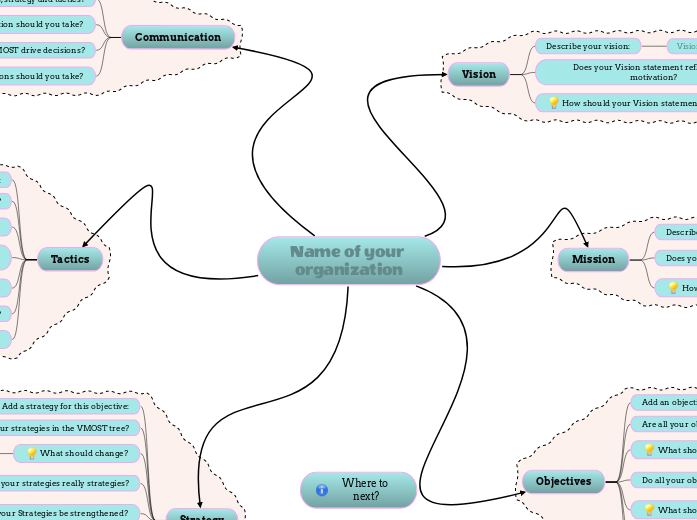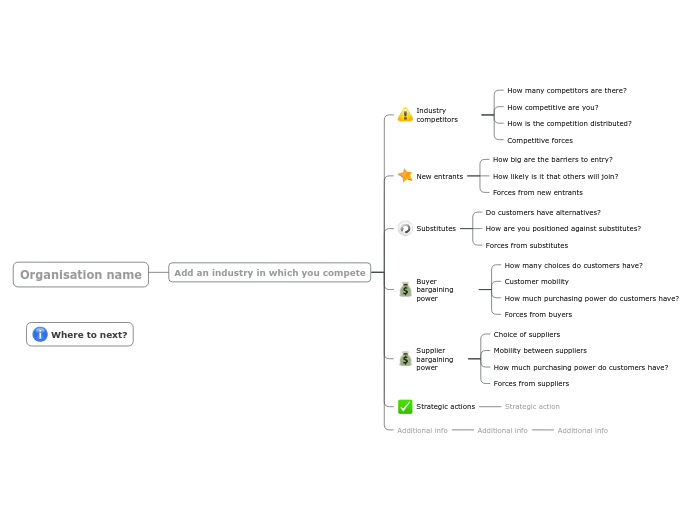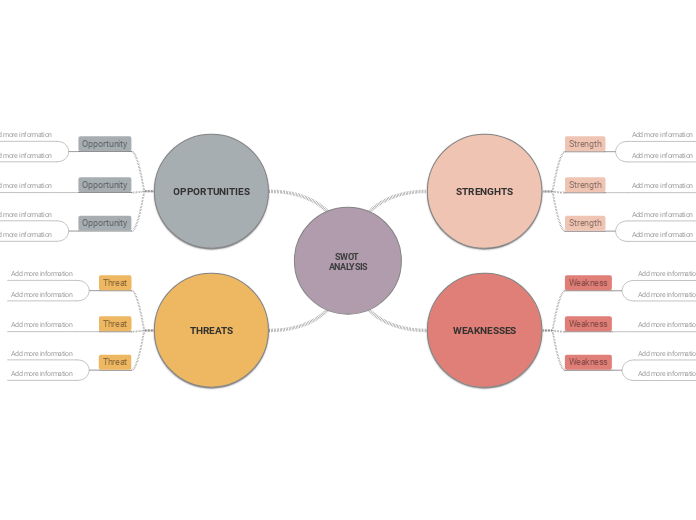Where to next?
Where to next?
You can now download your map or Share it with your colleagues.
Target outcome
Name the target outcome
Begin by identifying the target outcome in a few words and press Enter.
For example, you might be aiming to increase production capacity, so this would be your target outcome.
Pre-conditions and actions
Condition
Add a condition before 'Target outcome'
What are the pre-requisites or conditions before you can reach 'Target outcome'?
Add a short description of a condition that must exist before you can reach 'Target outcome'. Remember to observe the constraints that you listed.
Example:
- Higher speed production equipment
- Trained operators
- An increased supply of components
Condition or action
What needs to be done before you can reach 'Condition'?
If this position is reachable from the current situation, then you can type in the next action instead.
If 'Condition' is already an action that can be done, then just press Enter.
Example: if 'Trained operators' is an intermediate step, then the pre-requisites could be:
- Finding suitable training
- Identifying staff for training
Add a condition or action before 'Condition or action'
What needs to be done before you can reach 'Condition or action'? What are the conditions of reaching this position? If this position is reachable from the current situation, then you can type in the next action instead.
If 'Condition or action' is already an action that can be done, then just press Enter.
What needs to be done before you can reach 'Condition or action'? What are the conditions of reaching this position?
If this position is reachable from the current situation, then you can type in the next action instead.
If 'Condition or action' is already an action that can be done, then just press Enter.
Action
What needs to be done before you can achieve 'Condition or action'?
If 'Condition or action' is already an action that can be done, then just press Enter.
Constraints
Constraint
Add a constraint that limits what you can do in moving from the current situation to the target situation.
A constraint may be:
- Time limitations
- Cost & resource limitations
- Technological limitations
- Performance limitations
- Policies, regulations or laws
- The interests of other stakeholders
Current situation
Describe your current situation
Add a line describing where you are now.
Target situation
Describe the target situation
Add a line describing where you want to be in the future.
